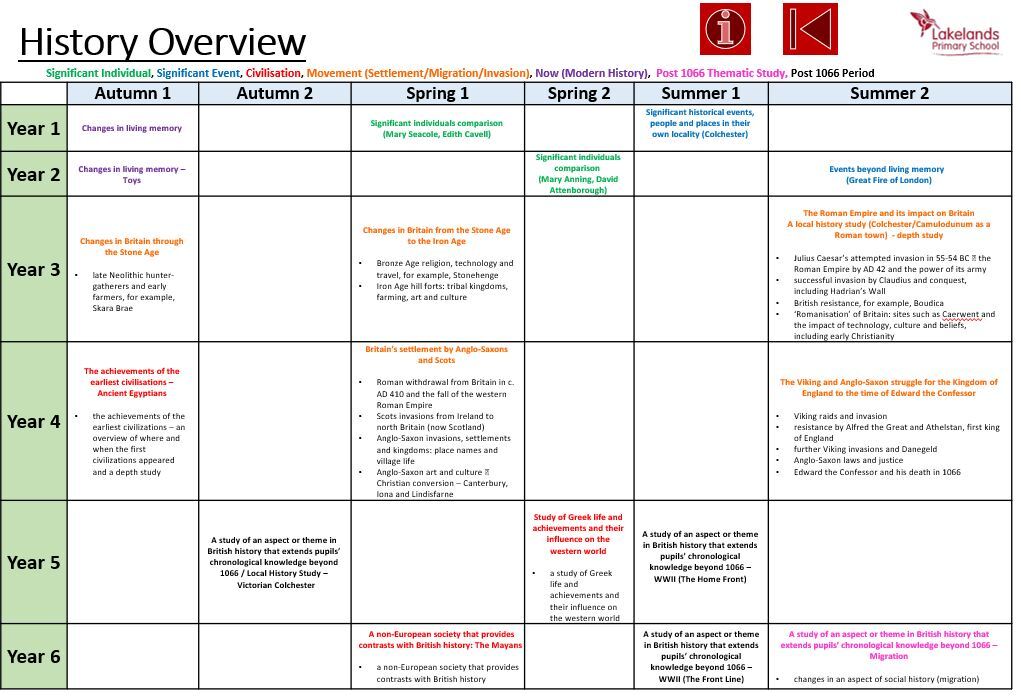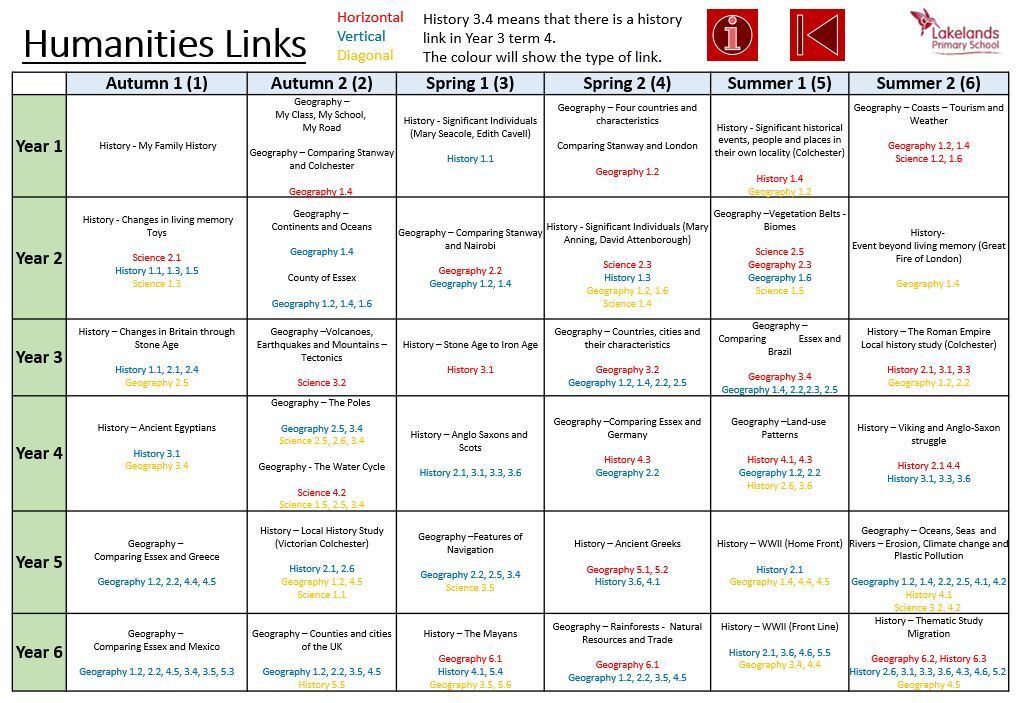History
At Lakelands Primary School, we teach our pupils (from Year 1) discrete subjects. This means that we teach pupils what it means to be historians. Pupils will understand that in History, we learn about the events of the past and how they have had an impact on the world today.
"A people without the knowledge of their past history, origin and culture is like a tree without roots."
Marcus Garvey
History Curriculum Overview

Historical Knowledge and Skills Coverage
All units of learning in our History curriculum are designed to cover the following key areas:
- Significant Individuals
- Significant Events
- Civilisations
- Movement (Settlement / Migration / Invasion)
- Modern History
- Post 1066 Thematic Studies
- Post 1066 Period Studies
Across the school, we teach History to help pupils acquire and develop a repertoire of skills and knowledge so that they increase their understanding of how historians work.
The following core concepts underpin the teaching of History:
- Investigating and interpreting the past through:
- questioning
- observing
- analysing sources
- Building an overview of world history by:
- describing significant events and individuals
- comparing time periods
- comparing times studied with other areas of interest around the world (i.e. when learning about Ancient Egyptians, pupils also learn about what was happening in Britain at the same time)
- Understanding chronology through:
- the use of timelines and dates and recounting these
- identifying changes in a period of history
- identifying periods of rapid change
- Communicating historically by using appropriate historical vocabulary.
We use these to support teacher knowledge and improve lessons:
- Knowledge organisers
- Skills progression through adapting the Essentials Curriculum
How is History Taught?
Historical concepts are planned and articulated in our half-termly planners and help pupils understand the knowledge taught. We plan a coherent curriculum to ensure that historical knowledge is built upon. Each unit of learning has been mapped purposefully with authentic connections based on prior learning or act as building blocks for future units. For example, pupils learn about the physical geography of Greece (in a discrete unit of learning in Geography). They learn about the importance of peninsulas, islands and mountains. This is so that when they learn about Ancient Greece at a later date in History, they are aware of how the Greeks were able to use their seafaring skills and mountainous regions to expand their empire, whilst defending it at the same time.
Each lesson starts with a 'Let's Recap' section which enables pupils to recap on prior knowledge, and ends with a cumulative knowledge quiz to support pupils to remember significant facts. We also use Knowledge Organisers to support pupils to retrieve and learn significant facts (see below).
Enrichment Opportunities in History
There are various ways in which we enrich the pupils' historical knowledge and skills beyond individual History lessons:
- Trips and visits, including Colchester Castle and the Tower of London
- Art History club where pupils study famous artists from various time periods
- The design of the Lakelands Curriculum means that pupils will have historical links to other areas of learning (especially Music, Art and Geography).
- Assemblies - some examples of these can be found at the bottom of this page.
History Links with other curriculum areas (including EYFS)
In EYFS, the foundations are laid so that pupils are prepared for the History curriculum in Year 1. Pupils learn about key events such as Remembrance and the moon landing. They also look at how the world has changed over time when exploring themes such as vehicles, dinosaurs and farming. Activities are also closely linked with the Early Learning Goal of Understanding the World (Past and Present).
In the rest of the school, the units of learning for History have been carefully positioned so that they either reinforce prior learning across the curriculum (e.g. in Geography or Science) or act as foundation / building block for learning to built on at a later stage.

Knowledge Organisers
For our Knowledge Organisers, please see below.
History Year 1 - Changes within living memory (My Family)
History Year 1 - Significant Events, People and Places in my Local Area
History Year 1 - Significant People (Edith Cavell and Mary Seacole)
History Year 2 - Changes within living memory (Toys)
History Year 2 - Significant People (David Attenborough and May Anning)
History Year 2 - Event beyond living memory (The Great Fire of London)
History Year 3 - Changes through the Stone Age

